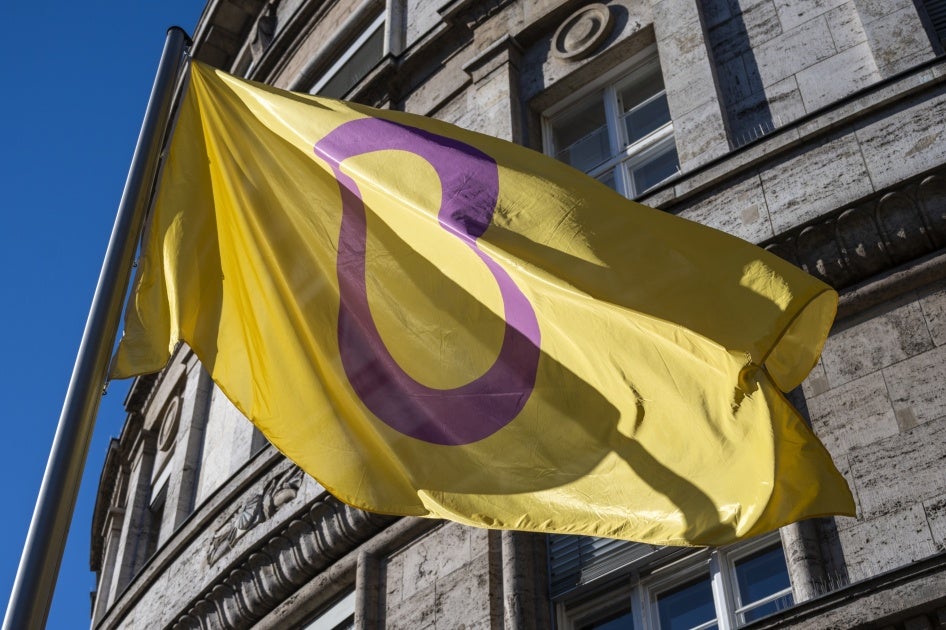April 4, 2024
Hilary Power
UN Geneva Director
Kyle Knight
Interim Deputy Director, Lesbian, Gay, Bisexual, and Transgender Rights Program

An Intersex flag raised in front of the Berlin Senate Department for Justice, Diversity and Anti-Discrimination. © 2022 Christophe Gateau/picture-alliance/dpa/AP Images
The United Nations Human Rights Council has passed its first ever resolution affirming the rights of intersex people, signaling growing international resolve to address rights violations experienced by people born with variations in their sex characteristics.
The resolution was put forward by the governments of Australia, Chile, Finland, and South Africa and is called “Combating discrimination, violence and harmful practices against intersex persons.”
Children born with variations in their sex characteristics – sometimes called intersex traits – are often subjected to “normalizing” surgeries that are irreversible, risky, and medically unnecessary. Approximately 1.7 percent of people have an intersex trait, meaning intersex variations are not uncommon, just often misunderstood.
Since the 1950s, surgeons have conducted medically unnecessary “normalizing” operations on intersex children, such as procedures to reduce the size of the clitoris, which can result in scarring, sterilization, and psychological trauma. Intersex advocacy groups, as well as a range of medical and human rights organizations, have been speaking out for decades. Despite growing consensus that these surgeries should end and global progress on banning [HJH1] medically unnecessary intersex surgeries, some parents continue to face pressure from surgeons to choose these operations for their children who are too young to participate in the decision.
In a 2013 report, the World Health Organization opposed early sterilizing surgeries on intersex children. UN human rights treaty bodies have condemned such operations more than 50 times since 2011 and recommended the prohibition of forced or coerced medical interventions with respect to intersex characteristics, such as nonemergency medical interventions performed without full, free, and informed consent. In late 2023, the UN Office of the High Commissioner for Human Rights issued a technical note, recommending the prohibition of “forced or coerced medical interventions with respect to intersex characteristics, such as non-emergency medical interventions performed without full, free and informed consent,” drawing on the numerous recommendations from treaty bodies.
The resolution mandates a global report on human rights violations against intersex people and is an opportunity to correct myths and ensure that children born perfectly healthy – just a little different – are free to grow up and make decisions about their own bodies.

No comments:
Post a Comment